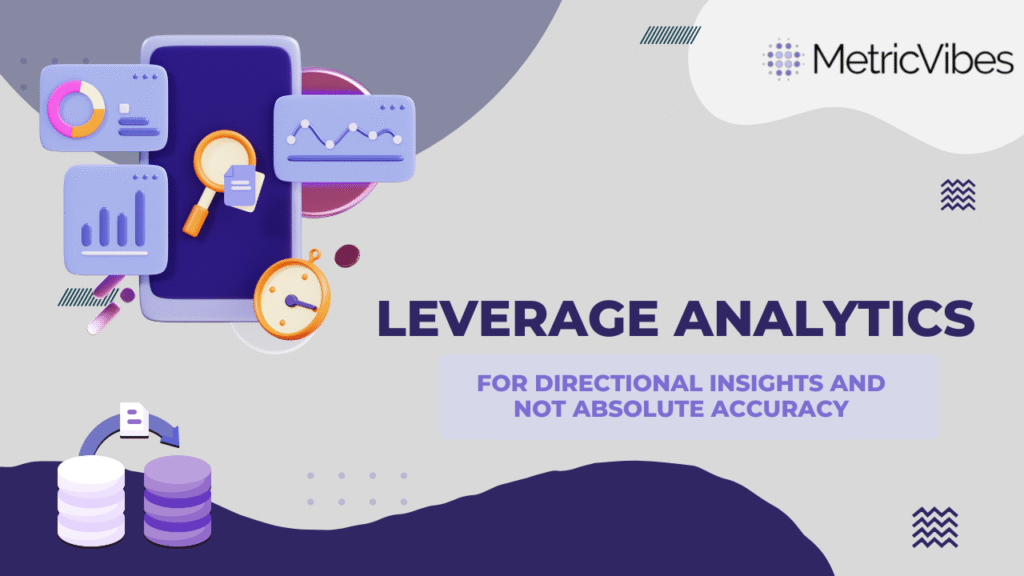Leverage Analytics for Directional Insights and Not Absolute Accuracy
Introduction
In today’s business world, data-driven decision-making is pivotal. Studies show that companies using data-driven strategies see significantly higher profitability. However, it’s crucial to recognize that analytics should serve as a guide for strategic decisions, not as an infallible source of truth. Analytics data can provide valuable insights, but it must be understood in the context of its inherent limitations.

Data Accuracy and Compliance Challenges
Analytics data, particularly in the context of privacy and compliance regulations, cannot always provide 100% accuracy. Data collection is often restricted for non-consenting users, meaning some user behavior goes untracked. Consequently, achieving complete accuracy in analytics data is challenging.
The industry standard for data accuracy is about 90%, which is directionally accurate and highly valuable for business decisions.
Focusing on the 10% Gap
If a business insists on closing the remaining 10% of data gaps to achieve perfect accuracy, it will require significant effort and resources. However, this effort may come at the expense of gaining incremental insights that could be more useful in driving actionable business decisions.
It could also lead to the data teams trying to bypass the user privacy regulations like GDPR which can lead to… well you know. The cost of fixing these data gaps often outweighs the benefits, as businesses would lose out on valuable, timely insights in the process.
The True Purpose of Analytics
Analytics should be viewed as a tool for understanding user behavior. It tells businesses which products and features are resonating with users, and how they are interacting with the business.
The real value of analytics lies not in achieving absolute accuracy, but in uncovering trends and patterns that inform better decision-making.
Shifting the Focus from Accuracy to Insights
Instead of obsessing over achieving perfect data accuracy, businesses should focus on the purpose of analytics: providing directional insights that guide strategy. By understanding analytics data as a reflection of user behavior, businesses can make informed decisions that are timely, strategic, and more aligned with the needs of the business and its customers.
Conclusion
Analytics data is an essential tool for making informed business decisions, but it should be recognized for its directional value rather than its absolute accuracy. The 90% accuracy standard is sufficient for gaining valuable insights into user behavior and driving business strategies.
Businesses should focus on leveraging this data to understand trends and make better decisions, rather than expending resources on perfecting every last data gap.
Reach out for tailored analytics and personalization solutions for your business by us. Contact Here

